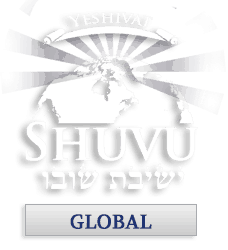This week’s parsha deals with a concept that is not widely understood. What is Teruma? Why is there Teruma? What purpose does it serve and why pay attention to the idea?
Concisely, Teruma is stuff dedicated to Hashem. Teruma comes in many shapes and sizes; a primary characteristic is that Teruma is given voluntarily. Teruma may be required, but there is no Teruma police that goes around enforcing the gifting of Teruma. In this week’s parsha, we see that Teruma can take the shape of many different items that are called to be gifted in order to construct the Mishkan. This includes precious metals and stones, cloth, everything necessary to build and adorn the Mishkan. So, before donating things, why is it necessary to have a specific term for the donations?
The idea here is that once something is dedicated to Hashem, it’s very nature changes. The thing donated, the Teruma, is physically different than it was before it was dedicated to Hashem. One cannot treat Teruma the way one treats everyday items. For instance, a piece of gold jewelry is a normal piece of every day decoration, until it is dedicated to Hashem. Once it is dedicated to Hashem, the very nature of the piece of jewelry has changed. It is now involved in a vow. Not just any kind of vow, but a vow to Hashem. This is series business. A vow to Hashem may not be broken.
Let’s look at an implication of this idea of Teruma being a vow. There are several kinds of agricultural offerings, including the first tithe and Bikurim. In Temple times, many farms and orchards were a great distance away from Jerusalem. They were far enough away that those agricultural products that were pledged as Teruma would spoil during the trip. Torah recognizes this problem and allows for the agricultural product’s value to be converted into money, which is easily transportable and does not spoil. This is why the Temple shekel was created. The problem was that once your tithe was converted to money, that money may not be used at all for anything other than donation to the Temple. To use those monies for anything else would be breaking the vow to Hashem. This problem has two aspects, the temptation to intentionally use the monies for something other than donation to the Temple, and accidental co-mingling of these monies with other monies which were not Teruma. To avoid these difficulties, the Temple shekel was created. The Temple shekel could only be used in Jerusalem, so, these dedicated monies could not be intentionally or unintentionally misused. So, one could sell one’s tithe, take the money to a local Kohayn, and exchange the tithe money for Temple shekels, and bring the Temple shekels to Jerusalem. Problem solved.
Yeshua’s problem with the money changers was not Temple shekels themselves. Rather, the money changers had the citizenry trapped. They had to use Temple shekels, and so the money changers were charging usurious fees. The money changers could have charged a nominal commission and made a very nice living rather than taking advantage of a system that had good intent, but since there was no alternative, it left the money changers in a position where they could take advantage unreasonably.
So every time we give something to Synagogue, we are giving Teruma. This is important to understand, because once we pledge the thing to the synagogue, we have made a vow to Hashem. This is true with money, books, artwork, food, etc. The things we give may not be used for any other purpose. We need to be careful of this. We cannot simply repurpose things that are Teruma. Teruma must be used for Hashem.
